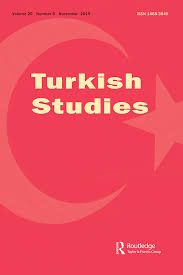Nouvelle publication: Polarized partisanship, over-stability and partisan bias in Turkey


Un nouvel article par Semih Çakır est maintenant disponible dans Turkish Studies. Dans ce papier, l'auteur analyse l'influence de la partisanerie lors des élections générales turques de 2011 et 2015. L'article est disponible ici.
Résumé (en anglais) : A vast literature demonstrates that partisanship has a stabilizing impact on politics, as it limits electoral volatility. Recent studies have also shown that polarization increases partisanship, thus contributing to electoral stability. Focusing on Turkey, an unconsolidated and highly polarized democracy, this study investigates the role of partisanship in a comparative context by means of data from the Comparative Study of Electoral Systems project. I find that Turkey (among more than 40 countries) is a very high-partisanship country, where partisanship greatly shapes the evaluations of short-term determinants of vote and the vote itself. This research also shows that partisanship in Turkey is associated with very low electoral volatility and defection rates. Moreover, the degree of identification also plays a significant role in its impact on volatility and defection. These findings from the Turkish case offer insights and stimulate a new normative debate on the role of partisanship in unconsolidated democracies.
Un nombre limité de copies gratuites sont disponibles ici.
Ce contenu a été mis à jour le 18 octobre 2019 à 14 h 57 min.
Commentaires